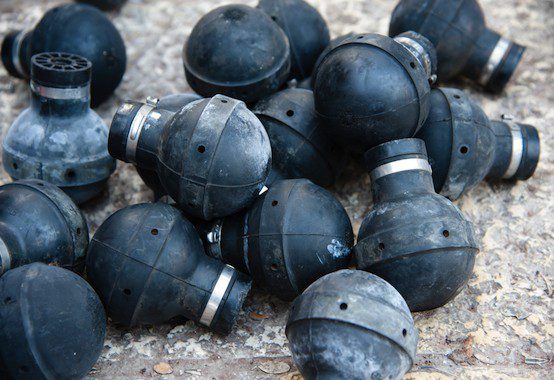Resilience & Restraint

This has been a summer of discontent—and far worse. As the anniversary of World War I haunts the West, the world seems to be plunging into chaos. Radical Islamists hardened in the Syrian civil war with Bashar al-Assad surged into Iraq and proclaimed themselves the “Islamic State,” with lethal consequences for Christians and other religious minorities. A decade of U.S. nation-building in Iraq was wiped away in weeks. Even as U.S. air support and advisors returned to a battlefield Americans thought they had left for good in 2011, Russian forces gathered on the border of Ukraine, where violence between pro-Western and pro-Russian factions has only escalated since the downing of a Malaysian Airlines commercial flight over the pro-Russian east.
Benjamin Netanyahu’s government in Israel, meanwhile, was on the verge of triggering a third Intifada after a brutal crackdown on Gaza. And footage out of Ferguson, Missouri showed the consequences of militarized policing closer to home, as the killing of an unarmed black teenager by a cop sparked protests, looting, and a show of force by St. Louis County police that included MRAP armored vehicles, snipers, LRAD sonic weapons, and even a no-fly zone. It resembled a scene from last year’s confrontations in Istanbul’s Taksim Gezi Park between police and protesters calling (among other things) for curbs on the power of Turkish Prime Minister Recep Tayyip Erdogan—who this August won a new lease on power as Turkey’s first directly elected president and is set to wield more authority over his country than anyone since Ataturk.
Amid all this, the American media has been filled with calls from neoconservatives and humanitarian interventionists for President Obama to do more—but the United States has already done far too much. We created the power vacuum in Iraq that the Islamic State now threatens to fill. We supplied many of the arms—intended for anti-Assad rebels and the Iraqi military—that are now in the hands of the militants slaughtering Christians. Israel’s weapons are also paid for in large part by U.S. taxpayers. And those police in Ferguson—who are, as several Iraq War veterans have attested, more heavily armored than many U.S. soldiers who were sent to a foreign warzone—have acquired their military-grade weapons and training as a byproduct of our adventures abroad. The war is literally coming home. 
Having fueled these conflagrations, the U.S. is in a poor position to quench the flames with yet more of the same accelerants. Americans have come to mistake arms for strength and the will to start conflicts for the power to resolve them. When the Soviet Union invaded Afghanistan in 1979, the world was not, in fact, bearing witness to American weakness opposite Communist strength. On the contrary, the USSR survived just long enough for its leaders to rue the war, while America regained confidence during eight years in which Ronald Reagan pursued a strategy not of noninterventionism but of significantly less interventionism than characterized our foreign policy in the decade before or after his presidency.
What’s more, the military buildup that was useful for economic and moral purposes in the Reagan years—demonstrating preparedness and the means to outspend a rival superpower—is unnecessary now, when the task is not to outmatch a Soviet Union but to show that America is resilient—stable and free—in a world of collapse and crises. Restraint and resilience, not wars that only lead to more wars, must be America’s strategy and watchwords today.
Comments